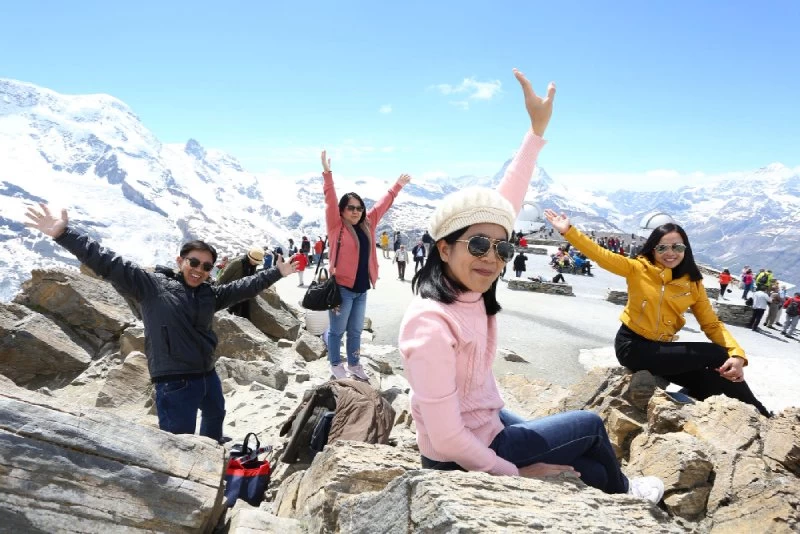
Leh Ladakh—a destination that evokes images of towering peaks, pristine blue lakes, winding roads, and ancient monasteries. Tucked away in the northernmost part of India, Ladakh is not just a place; it’s a once-in-a-lifetime experience. Planning a trip to this remote Himalayan wonderland requires careful consideration of timing, routes, acclimatization, permits, packing essentials, and more.
This comprehensive Leh Ladakh travel guide will help you plan the perfect Leh Ladakh tour so that you can enjoy a smooth, safe, and unforgettable journey.
Choosing the right season is key to enjoying the best of Ladakh.
 Summer (May to September)
Summer (May to September)Best time to visit
All roads and passes are open
Ideal for biking, camping, sightseeing
Pleasant temperatures and clear skies
 Winter (October to March)
Winter (October to March)For snow lovers and adventure seekers
Famous for the Chadar Trek (frozen Zanskar river)
Fewer tourists but limited access to certain areas
 Recommendation: Plan your trip between May to mid-September for maximum accessibility and a wider range of activities.
Recommendation: Plan your trip between May to mid-September for maximum accessibility and a wider range of activities.
You can reach Leh Ladakh either by air or road, depending on your travel preferences and time availability.
 By Air
By AirDirect flights from Delhi, Srinagar, Chandigarh
Leh Airport (Kushok Bakula Rimpochee Airport)
Fastest and most convenient option
 By Road
By RoadDistance: ~470 km
Duration: 2 days with an overnight halt (Jispa or Sarchu)
Open from June to September
Distance: ~420 km
Duration: 2 days with an overnight stay in Kargil
Open from May to October
Tip: If traveling by air, rest for at least 24–48 hours in Leh to acclimatize to the high altitude.
A well-planned 7 to 10-day itinerary works best for covering the major attractions and adjusting to the altitude.
Day 1: Arrival in Leh and rest
Day 2: Leh local sightseeing
Day 3: Drive to Nubra Valley via Khardung La
Day 4: Explore Nubra and head to Pangong Lake
Day 5: Return to Leh
Day 6: Visit Hemis, Thiksey, and Shey monasteries
Day 7: Departure
Ladakh’s high altitude (11,000+ ft) can lead to Acute Mountain Sickness (AMS) if you're not careful. Common symptoms include headaches, nausea, dizziness, and breathlessness.
 Acclimatization Tips:
Acclimatization Tips:Avoid strenuous activity on Day 1
Stay hydrated (but avoid overhydration)
Avoid alcohol and smoking
Carry medicines like Diamox (after consulting a doctor)
Indian tourists need permits to visit protected areas like:
Nubra Valley
Pangong Lake
Tso Moriri
Turtuk
Hanle
 How to Get It:
How to Get It:Apply online through the Ladakh Tourism website
Or get it from the DC office in Leh
Carry multiple photocopies for check posts
Foreign tourists require a Protected Area Permit (PAP) and must travel in a group of two or more with an authorized guide.
 Leh
LehShanti Stupa
Leh Palace
Magnetic Hill
Hall of Fame
 Nubra Valley
Nubra ValleyKhardung La Pass (18,380 ft)
Diskit Monastery
Hunder Sand Dunes (camel ride)
 Pangong Tso Lake
Pangong Tso LakeFamous for its changing colors
Overnight camping by the lake
 Monasteries
MonasteriesHemis (largest in Ladakh)
Thiksey (like Potala Palace of Lhasa)
Alchi (11th-century murals)
 Tso Moriri Lake
Tso Moriri LakeRemote, serene, and less touristy
Ideal for those seeking solitude
Ladakh’s weather can change rapidly, so packing wisely is essential.
 Clothing
ClothingThermals and fleece jackets
Windproof/waterproof outerwear
Woolen gloves, socks, and cap
UV-protection sunglasses
 Essentials
EssentialsSunscreen SPF 50+
Lip balm & moisturizer
Water bottle and energy snacks
Power bank, torch, extra batteries
 Medical Kit
Medical KitDiamox, pain relievers, motion sickness pills
Band-aids, antiseptics, ORS
Note: Ladakh has limited ATMs and mobile connectivity. BSNL and Jio work best in remote areas.
While in Ladakh, you can explore using:
Private taxis (costly but comfortable)
Self-drive SUVs/bikes (available on rent in Leh)
Group tours (budget-friendly and guided)
Public buses (limited but cheapest option)
Caution: Fuel stations are rare after Leh. Top up your tank in Leh or Diskit before heading to Pangong or Tso Moriri.
Ladakhi food is a delightful mix of Tibetan and Indian influences.
Thukpa: A comforting noodle soup
Momos: Steamed or fried dumplings
Skyu: Traditional Ladakhi pasta dish
Butter Tea: Salty and energizing, an acquired taste
Most guesthouses and cafes in Leh serve Indian, Tibetan, and continental food. Carry dry snacks and ready-to-eat meals for remote areas.
Ladakh is ecologically fragile. Be a responsible traveler:
Do not litter; carry back your trash
Avoid plastic bottles and bags
Respect local customs and monasteries
Do not disturb wildlife or flora
Support local artisans and homestays
A trip to Leh Ladakh is not just a holiday—it’s a soul-stirring experience. The vast emptiness of the landscapes, the spiritual calm of the monasteries, the thrill of the mountain passes, and the warm smiles of the locals leave a lasting impression. With the right planning, preparation, and spirit of adventure, your Leh Ladakh tour can become the highlight of a lifetime.
Whether you're biking through high-altitude roads, camping by pristine lakes, or simply gazing at star-filled skies, Ladakh promises something magical for every traveler.